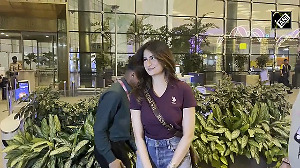The United Nations had little security when it went to Iraq to provide humanitarian aid and help in the country's reconstruction.
"The United Nations' presence in Iraq remains vulnerable to any who would seek to target our organisation," top UN envoy in Iraq Sergio Vieira de Mello had told the Security Council in a briefing about three weeks ago.
De Mello and 16 others were killed when a truck laden with explosives drove into the Canal Hotel in Baghdad on Tuesday.
The world body's security, he had said, relies "significantly" on its reputation and "our ability to demonstrate that we are in Iraq to assist its people".
Also, the US waged a war in Iraq without UN backing, which led the Security Council to authorise a loosely defined mission.
Many experts suggest that the cooperation and dependence on the US security may have compromised UN neutrality.
The world body never wanted to be seen as part of the American- led coalition, which was already arousing opposition in different parts of the country.
It wanted to be seen as an independent body trying to serve the people of Iraq and help them build democratic institutions. In short, it was seeking an independent identity.
That is why it did not want American troops to provide security to its headquarters, which it never thought would be targeted.
Those who attacked the UN headquarters would have been aware that it was a lightly guarded building.
The Security Council has said the UN will not be deterred by the incident and will continue its operations.
But it will need to decide how much security it needs at its establishments in Iraq.
That question will need to be decided over the next few days as Annan selects an envoy for Iraq and tries to pacify agitated staff.





